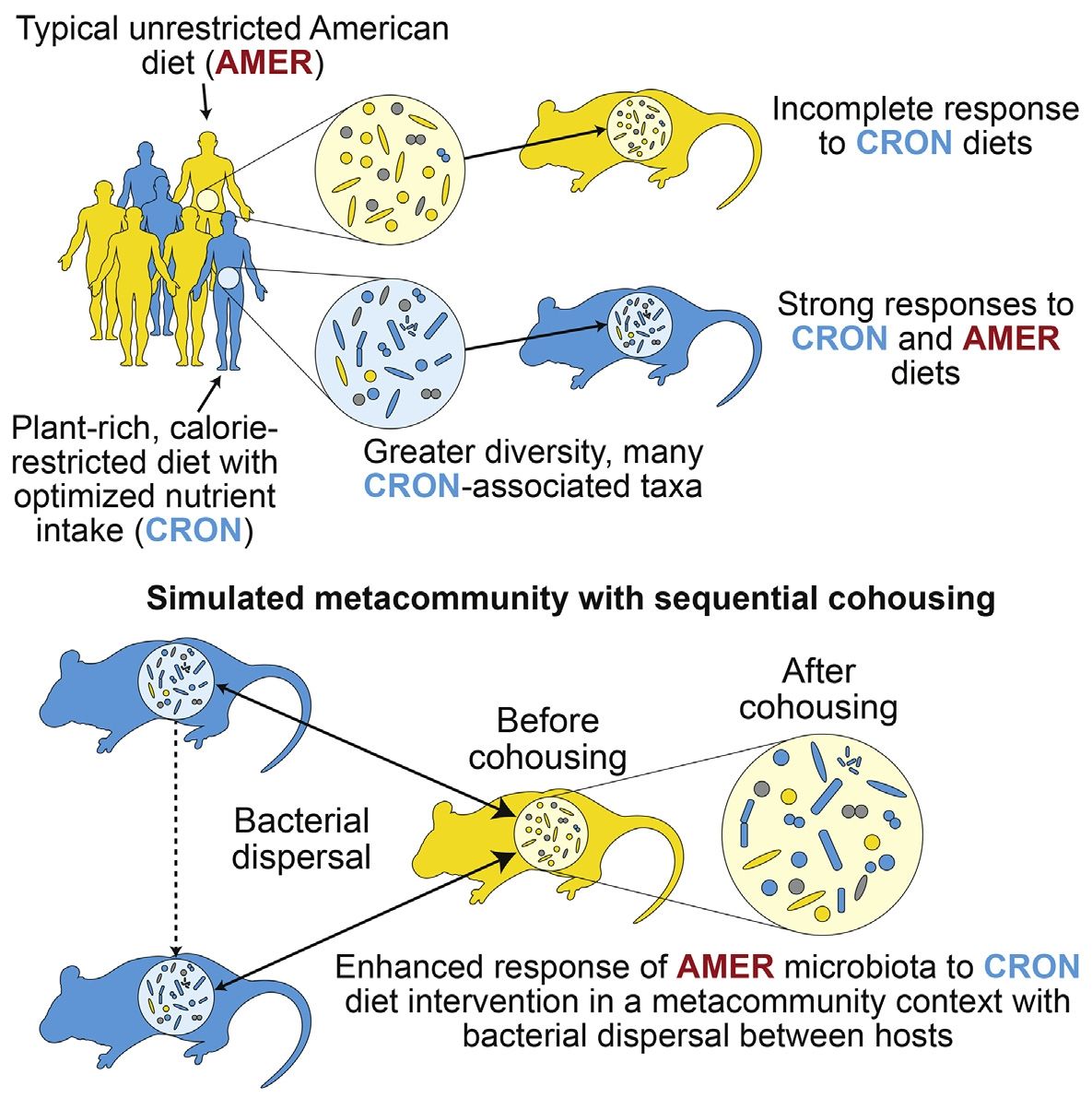Struggling with your diet? Your microbiota could be to blame.
Your microbiota may not be on your side as you try improving your diet this New Year’s. In a study published December 29 in Cell Host & Microbe, researchers explore why mice that switch from an unrestricted American diet to a healthy, calorie-restricted, plant-based diet don’t have an immediate response to their new program. They found that certain human gut bacteria need to be lost for a diet plan to be successful.
“If we are to prescribe a diet to improve someone’s health, it’s important that we understand what microbes help control those beneficial effects,” says Jeffrey Gordon, Director of the Center for Genome Sciences and Systems Biology at Washington University in St. Louis and senior author of the paper. “And we’ve found a way to mine the gut microbial communities of different humans to identify the organisms that help promote the effects of a particular diet in ways that might be beneficial.”
In order to study how human dietary practices influence the human gut microbiota and how a microbiota conditioned with one dietary lifestyle responds to a new prescribed diet, Gordon and his collaborators first took fecal samples from people who followed a calorie-restricted, plant-rich diet and samples from people who followed a typical, unrestricted American diet. The researchers found that people who followed the restricted, plant-rich diet had a more diverse microbiota.
